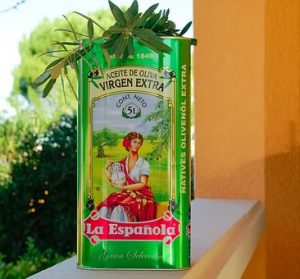1 Tbsp of oil = 120 calories of pure fat and energy: fats and lipids are better energy sources than protein or carbs
Avoid these Oils:
- Canola Oil: ideally, our bodies need an equal ratio of Omega 3’s & 6’s which is available in Canola oil. However, due to the over-processing of foods during these modern days, we now find ourselves ingesting copious amounts of Omega 6 while barely consuming traces of the important Omega 3’s. And yes, canola oil has the least amount of saturated fats and is highest in monounsturated fats, BUT it also contains GMO’s, is overly processed and therefore has no nutritional value.
- Cottonseed Oil: this oil is toxic, interferes with functioning of essential fatty acids, enhances cancer-causing aflatoxins in the body, contains pesticides, irritates the digestive tract and can cause shortness of breath and water retention in the lungs.
- Hydrogenated (hardened) & Partially-Hydrogenated oils are almost impossible for the system to assimilate. Hydrogenating prolongs shelf life while destroying essential fatty acids.
- Peanut Oil: may contain carcinogenic substances called aflatoxins which can lead to liver and pancreatic cancer.
- Refined Oils: this process involves mixing the oil with caustic soda, which is very corrosive, at a temperature of about 75 degrees. This removes free fatty acids, phospholipids and minerals to make the oil more stable for cooking. The end result is a product devoid of nutritional value.
Recommended Oils:
- use only Cold or Expeller-pressed oils (unrefined)
- Non-Hydrogenated Coconut Oil: cholesterol and trans-fat free, high in lauric acid which supports healthy metabolism and promotes good LDL cholesterol levels
- Extra-Virgin Olive Oil: acidity should be less than .8% – use oil within 14 mths. of harvest or package date – ideally, oil should be harvested, pressed & packaged in the same place
- Although olive oil remains stable when used for cooking, it does lose its nutritional value when exposed to heat
- other healthy options containing natural unrefined Omega 3 essential fatty acids include Flaxseed Oil, Camelina (wild flaxseed) Oil, Hemp Oil, Chia Oil and Walnut Oil
- “Alpha Balance” is great for light frying, cooking or added to cold meals
When frying unsaturated oils (normal temperature is usually about 160C), light and oxygen cause a chemical reaction that allows carcinogens to form, especially in oils containing 20% or more of Omega 6 fats. Also, when Omega 3 & 6 is exposed to high heat, it encourages inflammation in the body. This process does not occur when baking.
Stability of Oils for Safe Cooking:
Polyunsaturated fats are easily oxidized so are the least stable and suitable only for salad dressings, baking and low-temp cooking:
- Canola, Corn, Flaxseed Oil, Grapeseed (high in Omega 6), Rice Bran, Sunflower & Walnut Oil
Monounsturated fats are slightly less stable and liquid at room temperature, can be used for medium heat cooking or salad dressings:
- Avocado, Camelina (212F), Hemp Seed, Olive and most nut oils
Saturated fats are highly stable and usually solid at room temperature, suitable for high heat:
- Coconut (350F), Red Palm Olein


